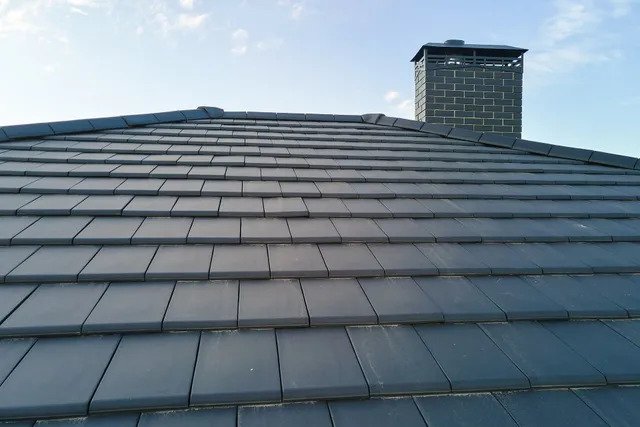Maintaining the structural integrity of a home or commercial property begins with the roof. The roof is a critical barrier that protects the interior from weather, temperature fluctuations, and external threats. However, this vital component is often addressed once problems arise. Regular roof inspections and maintenance services play a pivotal role in ensuring the longevity and durability of your roof. Neglecting these essential tasks can lead to costly repairs, structural damage, and safety risks. We will explore the significance of routine roofing flint, focusing on its long-term benefits for property owners.
Preventing Costly Repairs Through Early Detection
One primary reason to prioritize regular roof inspections is the opportunity to identify issues before they escalate into significant problems. Small leaks, loose shingles, or clogged gutters may seem minor, but they can lead to extensive damage if left unattended. For example, a small leak can result in water infiltration, weakening the roof structure and causing mold growth. Detecting such issues early through regular inspections helps mitigate repair costs and prevent further deterioration.
Roof maintenance services, such as clearing debris and inspecting drainage systems, are crucial in this preventive approach. Blocked gutters can cause water to accumulate on the roof, leading to sagging or structural stress. During inspections, professionals can address these issues promptly, reducing the likelihood of more significant repairs. Consistent care minimizes unexpected expenses and prolongs the roof's life, ensuring that property owners get the most value from their investment.
Extending the Roof’s Lifespan
Every roof has a finite lifespan, but proper maintenance can significantly extend its durability. Weather conditions, including heavy rains, snow, hail, and high winds, can affect roofing materials over time. Minor wear and tear caused by these factors can accumulate without regular inspections, accelerating the need for a replacement. Routine inspections allow for identifying weak spots or areas that require reinforcement, ensuring the roof remains functional for its intended lifespan or beyond.
Maintenance services also include treatments such as sealing cracks, replacing worn-out materials, and applying protective coatings that shield the roof from environmental stressors. For example, UV radiation can cause roofing materials to degrade over time, but periodic maintenance can prevent this by applying reflective coatings. This protects the roof and enhances energy efficiency by reducing heat absorption. Regular care ensures that a roof can withstand harsh conditions and continue to protect the property effectively.
Enhancing Property Value and Curb Appeal
A well-maintained roof is key to preserving a property's value and appearance. For homeowners looking to sell or rent their property, the roof's condition is often a decisive factor for potential buyers or tenants. A deteriorated or visibly damaged roof can lower the property’s market value and deter interested parties. Conversely, a regularly maintained and inspected roof reflects a commitment to property upkeep, making it more appealing.
Regular inspections and maintenance can also address aesthetic concerns, such as discoloration, moss growth, or sagging areas, which may detract from the property’s visual appeal. These services ensure the roof remains clean, functional, and aligned with the property’s architectural style. Investing in roof care enhances curb appeal and reassures buyers or tenants that the property has been responsibly managed, making it a worthwhile investment for property owners.
Ensuring Safety and Preventing Structural Damage
A compromised roof poses significant safety risks for building occupants. Water leaks, for instance, can damage ceilings, walls, and insulation, leading to structural instability. Over time, neglected roofs may even collapse under the weight of accumulated snow or due to severe storm damage. Regular inspections and maintenance can identify such vulnerabilities, allowing property owners to address them proactively.
Moreover, maintaining the roof contributes to the overall structural integrity of the property. The roof works with other components, such as walls and foundations, to provide stability. Neglecting roof care can strain these elements, leading to cracks, shifting, or other structural issues. Regular maintenance ensures the roof remains a reliable support system, safeguarding the property and its occupants from potential hazards.
Saving Energy and Reducing Utility Costs
Roof inspections and maintenance also have a direct impact on energy efficiency. A damaged or poorly insulated roof can lead to significant energy loss as conditioned air escapes and external air enters the building. This forces heating and cooling systems to work harder, increasing energy consumption and utility bills. By maintaining the roof’s insulation and addressing leaks or gaps, property owners can enhance their building’s energy efficiency.
Furthermore, modern roof maintenance often integrates energy-efficient solutions like reflective coatings or energy-saving materials. These upgrades reduce utility costs and contribute to environmental sustainability. Regular care ensures that the roof provides optimal insulation and protection, helping property owners save money while reducing their carbon footprint.
Adapting to Changing Weather Conditions
Climate change has led to increasingly unpredictable weather patterns, making regular roof inspections crucial. Roofs must withstand sudden storms, extreme temperatures, and other environmental challenges. Routine maintenance allows property owners to adapt to these changes by reinforcing weak points and ensuring the roof is prepared for adverse conditions.
Regular roof inspections and maintenance services are essential for preserving any property's integrity, safety, and value. The benefits are far-reaching, from preventing costly repairs and extending the roof’s lifespan to enhancing curb appeal and energy efficiency. These services not only protect the roof itself but also contribute to the overall stability and functionality of the property. By investing in routine care, property owners can safeguard their investments, ensure the safety of occupants, and adapt to changing environmental conditions. Prioritizing roof maintenance is a proactive step that yields long-term benefits, making it a crucial aspect of property management.
 Online Clock
Online Clock